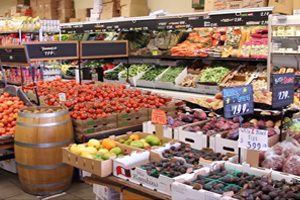
Consumer Groups Urged Better Product Labeling. In the wake of the recent and ongoing Salmonella St. Paul outbreak, as well as other tainted produce outbreaks in recent months, two consumer groups have asked the government to require that produce be labeled. The groups are looking for labeling that would permit for such food to be […]

Consumer Groups Urged Better Product Labeling. In the wake of the recent and ongoing Salmonella St. Paul outbreak, as well as other tainted produce outbreaks in recent months, two consumer groups have asked the government to require that produce be labeled. The groups are looking for labeling that would permit for such food to be traced back to the farm from where it originated, allowing regulators to determine where each fruit, vegetable, and egg came from even if those items are mixed in packages containing produce from other farms.
At a news conference, the Consumer Federation of America and the Center for Science in the Public Interest (CSPI) suggested “using numbered codes on stickers, laser printing, and even electronic identification tags to show the path the produce took to the consumer, from farm to fork.” Chris Waldrop, director of the Consumer Federation of America’s Food Policy Institute, said many retailers and growers are already using the technology required to implement tracing procedures. “This isn’t rocket science. It doesn’t require reinventing the wheel,” Waldrop said.
Adam Basford, assistant director of agricultural policy for the Florida Farm Bureau, said that emergency regulations could be very costly to some growers because they would have to attach the label to each item and keep more extensive records of their produce. “The emergency part scares us. We would like sufficient time to conform to those policies,” Basford said.
The ongoing Salmonella St. Paul outbreak has sickened 943 people in 40 states, the District of Columbia, and Canada. Originally thought to be linked to certain raw tomatoes and products made from those tomato types, investigators are now looking into Jalapeno and Serrano peppers and fresh cilantro as possible culprits in the multi-state Salmonella outbreak. Because a number of cases have been linked to Mexican restaurants, the FDA is looking into ingredients found with tomatoes in salsa and guacamole. The Food & Drug Administration (FDA) said last month that tomatoes were the most likely source of the outbreak, but since then, hundreds more have fallen ill, even though most stores and restaurants removed the suspect tomatoes from their shelves, indicating that the tomatoes targeted may not be the source of the outbreak.
Food borne illnesses are on the rise, in part, due to the challenges in policing an outdated and under-funded food-surveillance system overwhelmed by the emergence of mega-farms, -distribution centers, and -transporters. A labeling system would go a long way to help alleviate these challenges.
Meanwhile, foods posing a potential danger can enter the marketplace only after a laboratory has determined such food is safe, according to FDA rules; however, investigators have recently learned it is routine for private labs to continue to test food until a clean result is obtained. “This repeated testing is done without FDA knowledge that potentially dangerous food has been imported into this country and has entered commerce,” said Representative Bart Stupak, Democrat-Michigan and chairman of the House subcommittee that authorized the subpoenas.
The personal injury attorneys at Parker Waichman LLP offer free, no-obligation case evaluations. For more information, fill out our online contact form or call 1-800-YOURLAWYER (1-800-968-7529).


